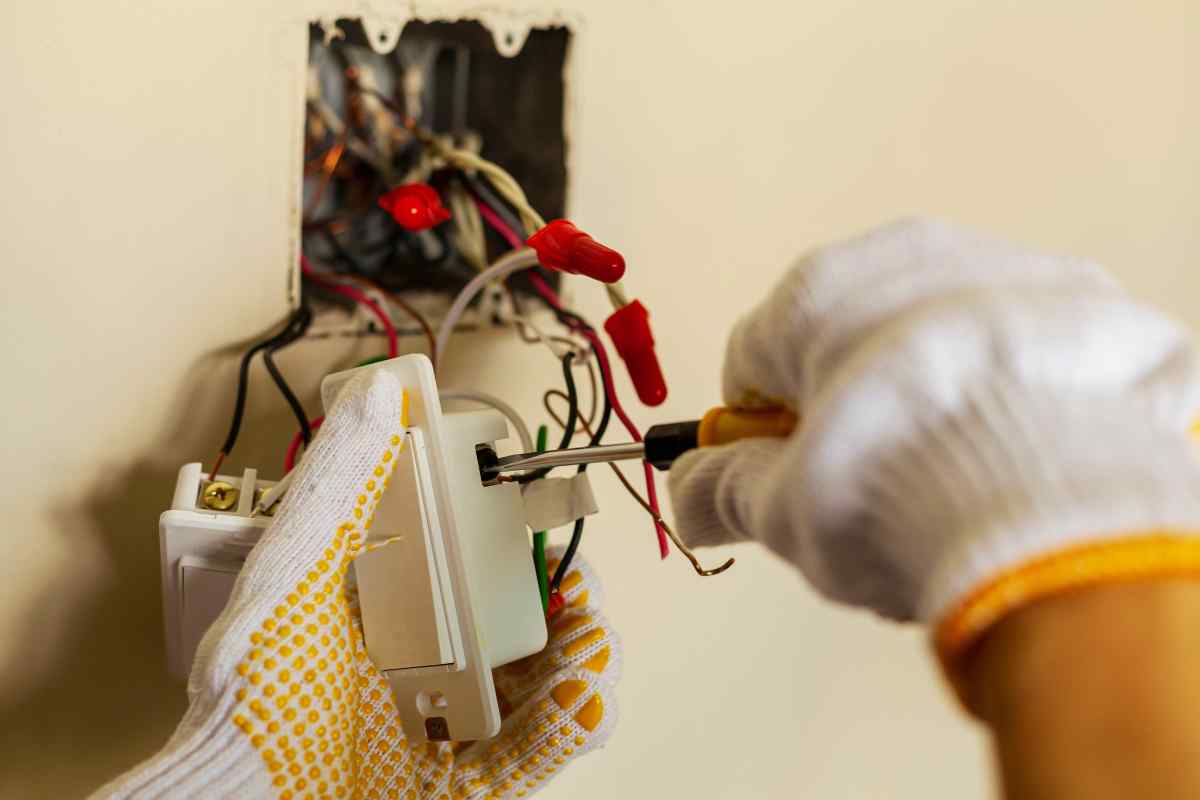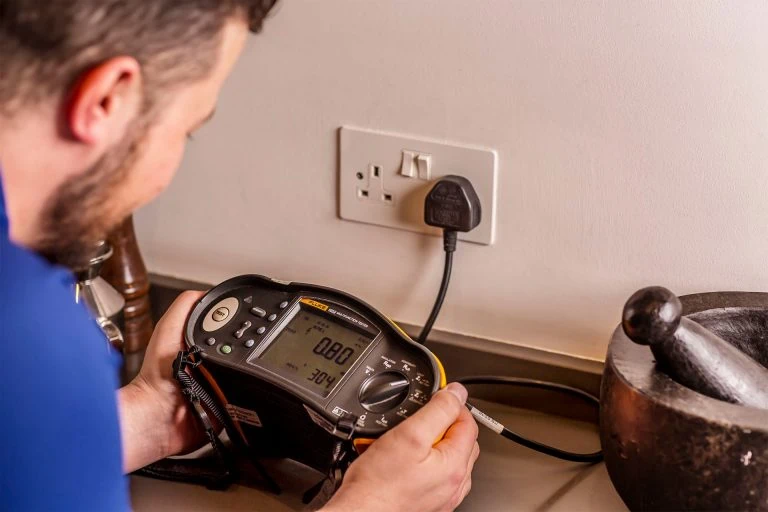Common Electric Problems Every Property Owner Should Know About
Homeowners often come across different electrical issues that can impact security and capability. Concerns like flickering lights and tripped breaker are a lot more usual than lots of recognize. These scenarios can suggest deeper electrical problems that warrant interest. Recognizing the dangers and indications connected with outdated wiring and dead outlets is important. What procedures can be taken to stop these issues? Checking out these typical electrical issues might disclose essential insights for keeping a secure home environment.

Flickering Lights: Causes and Solutions
Why do some homeowners experience flickering lights? Flickering lights can be a common annoyance, frequently showing underlying electrical problems. One primary cause is defective or loosened links within lighting fixtures or electrical wiring, which can lead to periodic power supply. Furthermore, making use of high-wattage appliances on the very same circuit may trigger voltage changes, causing lowering or flickering. Another potential problem is an overloaded circuit, where a lot of tools draw power at the same time, stressing the electrical system. Furthermore, out-of-date or degraded circuitry can add to irregular electric flow. In some instances, flickering lights may signal an issue with the home's electric panel or service line. Property owners must resolve flickering lights quickly to avoid potential hazards. Solutions might consist of tightening up links, redistributing home appliance load, or consulting an accredited electrical expert for a complete evaluation. Recognizing the source can help ensure a stable and risk-free electric system in the home.
Tripped Circuit Breakers: What You Need to Know
Have property owners ever questioned what triggers their circuit breakers to trip suddenly? This common issue commonly develops from an overload of electrical circuits, where as well numerous gadgets attract power at the same time. In such situations, the breaker works as a safety and security system, interrupting the flow of electrical power to avoid getting too hot and potential hazards. Another constant reason is a brief circuit, which occurs when a real-time wire contacts a neutral cord, developing a rise of electrical power that journeys the breaker. Ground mistakes can likewise bring about tripped breakers; these occur when a live cord touches the ground or a grounded surface area, positioning major security threats. Homeowners need to regularly examine their usage of high-wattage devices to stay clear of overwhelming circuits. In addition, recognizing the function of breaker can aid them respond properly during a journey, ensuring their home stays well-kept and safe.
Outdated Circuitry: Indications and Risks
Outdated circuitry can posture significant risks to property owners, often going undetected until troubles occur. Homes constructed before the 1980s may still have light weight aluminum wiring or knob-and-tube systems, which are no more considered safe. Indicators of outdated circuitry include flickering lights, frequently stumbled breaker, or shedding smells near electrical outlets. These indicators may recommend that the electrical system is loaded down or deteriorating.Additionally, homeowners may see swelter marks around switches or outlets, which can show getting too hot. The threat of electric fires markedly enhances with obsolete wiring, as these systems were not created to take care of contemporary electrical loads. Property owners are encouraged to have their wiring examined frequently, particularly when restoring or including new devices. By acknowledging these indicators early, they can stay clear of dangerous scenarios and maintain a more secure living atmosphere. Updating to existing electric criteria is a positive action in maintaining home safety and performance.
Frequently Blown Fuses: Fixing Tips
Regular blown integrates can suggest underlying electric concerns that might come from obsolete circuitry or overloaded circuits. Homeowners experiencing this problem must first determine the appliances attached to the impacted circuit. It is a good idea to avoid making use of numerous high-wattage devices at the same time, as this can bring about circuit overload. If the issue continues, checking the circuit box for indicators of wear or damages is critical; a defective circuit box might call for replacement.Additionally, checking for loose connections within the circuit can help protect against future events. Property owners need to likewise verify that the integrates being made use of are of the correct amperage, as utilizing an incorrect fuse can aggravate the trouble. Seeking advice from a licensed electrical expert is advised to assess the electrical system better if these troubleshooting ideas do not deal with the concern. Dealing with these problems promptly can help reduce threats and ensure the safety and security of the home's electric facilities.
Dead Electrical Outlets: Usual Causes and Fixes
When a house owner comes across a dead outlet, it can usually be a source of aggravation and confusion. Several common causes might cause this issue. One constant perpetrator is a stumbled breaker, which can be quickly reset. House owners should examine their electric panel to check if any kind of breakers remain in the off placement. One more possibility is a faulty outlet itself, which may need substitute. In addition, loose wiring links within the electrical outlet can disrupt power flow, making evaluation essential.Sometimes, the trouble may stem from an overloaded circuit, specifically when several tools are linked. In such instances, redistributing the electrical load can solve the concern. Home owners should additionally think about the Our site age of their wiring; older systems may require updates to meet contemporary electrical demands. If these steps do not correct the situation, consulting a qualified electrical contractor is suggested to ensure security and appropriate diagnosis.
Electrical Shocks: When to Be Worried
Just how can homeowners figure out whether an electrical shock warrants concern? House owners need to initially examine the intensity and context of the shock. A light fixed shock, usually felt when touching steel things, is common and usually safe. However, if the shock occurs while engaging with a plugged-in appliance or outlet, it may show a much more significant issue.The place and frequency of the shocks are important. Repeated shocks from the very same source, specifically in wet areas like kitchens or shower rooms, can indicate damaged circuitry or inadequate grounding. Property owners must additionally think about the experience of the shock; a shock that creates discomfort or contraction is extra disconcerting than a simple tingle.If there's any kind of unpredictability, it is a good idea to get in touch with a certified electrical contractor. Neglecting prospective electrical threats can result in major safety and security threats, consisting of fire or extreme injury.
Overloaded Circuits: Prevention and Safety Actions
Overloaded circuits posture significant dangers in property settings, usually leading to electric fires or equipment damage (Sydney Level 2 Electrician). House owners need to identify the indicators of an overloaded circuit, such as regularly tripped breakers or lowering lights. Executing preventative security techniques can help reduce these risks and assure a much safer living setting
Identifying Overloaded Circuits
What signs indicate that a circuit may be strained? Home owners ought to be cautious for several essential indicators. Regularly tripped breaker or blown fuses suggest extreme tons on the circuit. Lowering or flickering lights, specifically when various other devices are in usage, can represent an insufficient power supply. In addition, outlets or switches that really feel warm to the touch might suggest getting too hot, a prospective fire hazard. Unusual buzzing noises from outlets likewise require attention, as they can represent electric concerns. If devices run inefficiently or fail to begin, it may be a sign of an overloaded circuit. Identifying these indications early can assist protect against significant electric troubles and promote a much safer home setting.
Preventive Safety Practices
To maintain a risk-free and reliable electrical system, property owners must execute precautionary security methods that deal with potential circuit overloads. One effective step is to prevent attaching way too many devices to a single electrical outlet, as this can go beyond the circuit's capability. Making use of power strips with integrated circuit breakers can aid distribute look at here now power securely. Home owners advice must also routinely check cables and home appliances for damages and change any kind of malfunctioning tools without delay. It is crucial to guarantee that breaker are functioning appropriately and to be knowledgeable about the total wattage being made use of in each circuit. In addition, consulting a certified electrical expert for periodic assessments can determine possible concerns before they escalate, ensuring a much safer living atmosphere and extending the lifespan of electric systems.
Regularly Asked Inquiries
Exactly how Typically Should I Have My Electrical System Inspected?
Routine assessments of electric systems are advised every 3 to 5 years. Homeowners ought to think about extra frequent checks if they experience problems, undertake remodellings, or reside in older residential properties to guarantee safety and conformity.
Can I Deal With Electric Problems Myself or Work With a Specialist?

What Are the Indicators of an Electric Fire Threat?
Indicators of an electrical fire risk consist of often stumbled breaker, flickering lights, burning smells, tarnished electrical outlets, or warm, buzzing wires. Home owners should stay watchful and look for specialist help if any one of these indications exist.
Just how Do I Know if My Home Requirements an Electrical Upgrade?
To establish if a home requires an electrical upgrade, indicators consist of regular breaker journeys, obsolete circuitry, not enough outlets, flickering lights, and the visibility of older electrical panels, showing possible safety risks and ineffectiveness.
Exist Details Security Tips for Do It Yourself Electric Job?
When taking into consideration do it yourself electrical work, one must constantly shut off power, utilize shielded tools, confirm circuit functionality, follow local codes, and consult experts for complicated jobs to assure safety and security and protect against mishaps. One more possible issue is an overloaded circuit, where also numerous gadgets draw power at the same time, straining the electric system. The danger of electrical fires noticeably increases with outdated electrical wiring, as these systems were not developed to deal with contemporary electrical lots. Constant blown fuses can show underlying electrical concerns that might stem from outdated circuitry or overloaded circuits. To preserve a efficient and risk-free electrical system, home owners need to execute precautionary safety and security practices that attend to possible circuit overloads. Accredited Service Provider Level 2 Electrician. Signs of an electrical fire danger consist of often tripped circuit breakers, flickering lights, burning odors, stained electrical outlets, or warm, humming wires
Comments on “5 things your Sydney Level 2 Electrician wishes you knew about circuit safety”